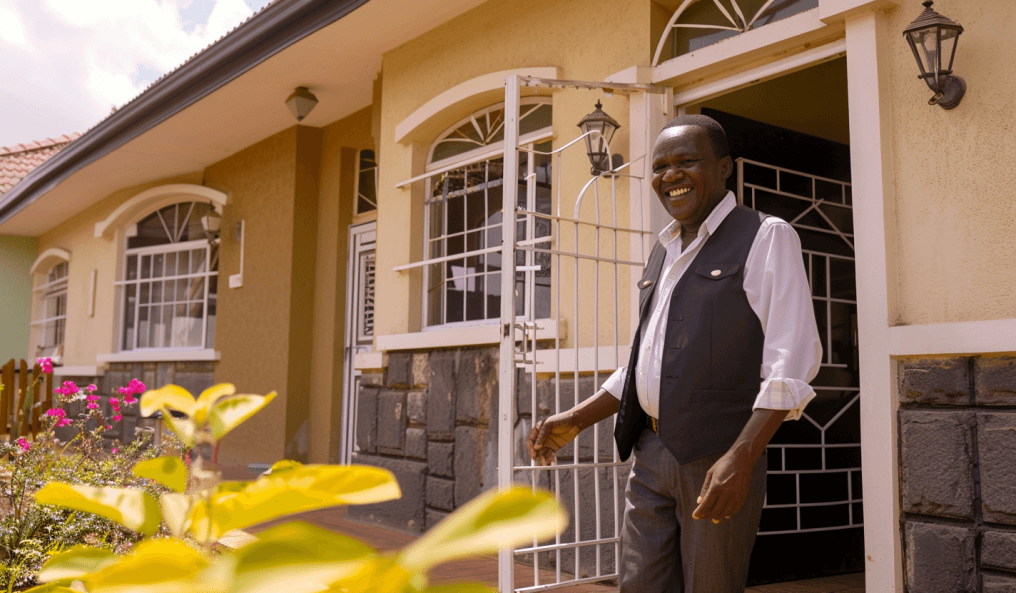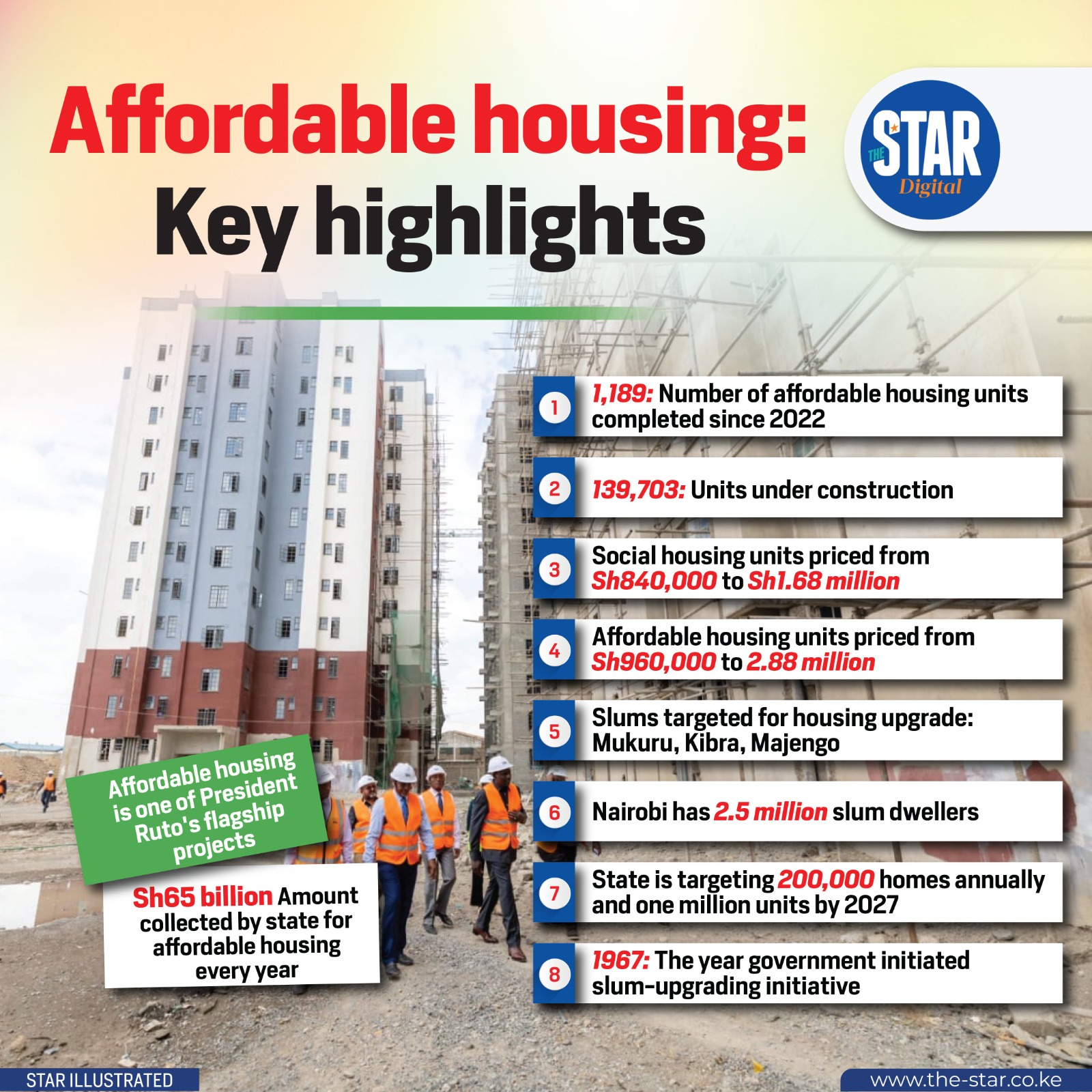Kiambu County has emerged as one of Kenya's most attractive property investment destinations, offering a perfect blend of accessibility to Nairobi, natural beauty, and significant growth potential. With its strategic location, improved infrastructure, and diverse property options, Kiambu presents compelling opportunities for both residential and commercial property investors.
Overview of Kiambu County
Located north of Nairobi, Kiambu County covers 2,449 square kilometers and borders the capital city, making it part of the greater Nairobi metropolitan area. The county's proximity to Nairobi, combined with relatively affordable property prices, has made it increasingly popular among professionals working in Nairobi but seeking better value and quality of life.
The county encompasses diverse landscapes from urban centers like Kiambu town and Thika to agricultural areas and emerging residential suburbs. This diversity provides various investment opportunities across different price points and property types, from affordable housing to luxury developments.
Key Investment Areas in Kiambu County
Thika - Industrial and Commercial Hub
Thika stands as Kiambu's most developed urban center with strong commercial and industrial foundations:
- Commercial properties: Retail spaces and office buildings with yields of 8-12%
- Industrial facilities: Manufacturing and warehouse properties with yields of 10-15%
- Residential estates: Middle-income housing developments from KSh 3-8 million
- Student accommodation: Properties near universities with yields of 12-18%
- Infrastructure: Well-developed roads, utilities, and social amenities
Ruiru - Commuter Town Growth
Rapid development driven by Nairobi commuters seeking affordable housing:
- Residential developments: New estates and apartment complexes
- Affordable housing: Entry-level properties from KSh 2-5 million
- Rental market: Strong demand from commuters, yields of 8-12%
- Commercial growth: Shopping centers and service businesses expanding
- Transport links: Good connectivity to Nairobi via multiple routes
Juja - Educational and Residential Hub
Home to Juja University and growing residential communities:
- Student housing: Accommodation for university students, yields 10-15%
- Family housing: Residential estates for young families
- Commercial opportunities: Businesses serving student and resident populations
- Development potential: Large parcels available for development
- Price range: Properties from KSh 2-6 million
Kiambu Town - County Headquarters
Administrative center with steady government-driven demand:
- Government housing: Accommodation for county employees
- Commercial properties: Offices and retail serving government sector
- Established infrastructure: Mature utilities and road networks
- Stable rental market: Consistent demand from government workers
- Property values: Homes and commercial spaces from KSh 3-10 million
Githunguri - Agricultural and Residential Mix
Traditional agricultural area with emerging residential development:
- Agricultural land: Coffee and tea farming with potential for conversion
- Residential plots: Large plots for individual home construction
- Development potential: Areas transitioning from agricultural to residential
- Affordable prices: Lower entry costs for land and development
- Future growth: Expected appreciation as urbanization spreads
Limuru - Upmarket Residential Area
Cooler climate and scenic views attract higher-income residents:
- Luxury homes: High-end residential properties from KSh 8-25 million
- Coffee estates: Historic properties with development potential
- Gated communities: Exclusive residential developments with amenities
- Climate advantage: Cool temperatures attractive to high-income buyers
- Tourism potential: Guest houses and hospitality facilities
Property Types and Investment Opportunities
Residential Properties
Affordable Housing Developments
Government-supported and private affordable housing projects:
- Target market: Middle and lower-income households
- Price range: KSh 1.5-4 million for apartments and houses
- Rental yields: 8-12% annually for well-located properties
- Government support: Tax incentives and financing assistance
- High demand: Significant housing shortage drives demand
Middle-Income Housing
Properties targeting working professionals and growing families:
- 3-4 bedroom houses: Detached and semi-detached homes
- Apartment complexes: 2-3 bedroom units with shared amenities
- Price range: KSh 4-8 million depending on location and features
- Rental market: Strong demand from Nairobi commuters
- Appreciation potential: 8-15% annual capital growth expected
Luxury Residential
High-end properties for affluent buyers:
- Large estates: 4-6 bedroom homes with extensive grounds
- Gated communities: Exclusive developments with premium amenities
- Price range: KSh 10-30 million for luxury properties
- Target market: High-income professionals and business owners
- Rental yields: 6-10% with potential for significant capital appreciation
Commercial Properties
Office Buildings
Growing demand for commercial office space:
- Government offices: County and national government facilities
- Private sector: Banks, insurance companies, and professional services
- Co-working spaces: Flexible office solutions for small businesses
- Rental yields: 10-15% for well-located office properties
- Growth drivers: Decentralization of businesses from Nairobi
Retail and Shopping Centers
Commercial retail opportunities serving growing populations:
- Shopping malls: Large-format retail centers in major towns
- Strip malls: Smaller retail developments in residential areas
- Standalone shops: Individual retail units along major roads
- Service businesses: Salons, restaurants, and professional services
- Investment returns: 12-18% yields for successful retail locations
Industrial Properties
Manufacturing and logistics facilities:
- Manufacturing plants: Food processing, textiles, and light manufacturing
- Warehouse facilities: Storage and distribution centers
- Logistics hubs: Properties serving Nairobi and northern Kenya
- Rental yields: 10-14% for industrial properties with good access
- Growth potential: Industrial relocation from congested Nairobi areas
Market Analysis and Trends
Price Trends and Appreciation
Historical and projected property value movements:
- Residential appreciation: 8-15% annually in well-located areas
- Commercial growth: 6-12% annual appreciation for commercial properties
- Land values: Raw land appreciating 10-20% annually in growth corridors
- Rental growth: 5-10% annual rental increases in established areas
- Market drivers: Population growth, infrastructure development, economic expansion
Supply and Demand Dynamics
Market forces shaping property values:
- Housing shortage: Significant deficit in affordable and middle-income housing
- Population growth: Rapid population increase driving housing demand
- Urbanization: Rural-to-urban migration increasing property demand
- Infrastructure impact: Road improvements opening new development areas
- Economic growth: County's economic expansion supporting property demand
Rental Market Analysis
Rental property performance and opportunities:
- Residential rentals: KSh 15,000-50,000 monthly for 2-4 bedroom properties
- Commercial rentals: KSh 50-200 per square foot monthly for office space
- Industrial rentals: KSh 25-80 per square foot monthly for warehouse space
- Occupancy rates: 85-95% for well-maintained properties in good locations
- Tenant mix: Government employees, commuters, students, and local businesses
Infrastructure Development Impact
Transport Infrastructure
Road and transport improvements driving property values:
- Thika Superhighway: Improved connectivity to Nairobi boosting property values
- Northern Bypass: Enhanced circulation reducing travel times
- Local road improvements: County government road upgrade programs
- Public transport: Matatu routes and planned BRT systems
- Future railways: Proposed commuter rail connections to Nairobi
Utility Infrastructure
Essential services supporting development:
- Electricity expansion: Kenya Power grid extension to new areas
- Water supply: Improved water infrastructure and treatment facilities
- Internet connectivity: Fiber optic expansion improving digital access
- Sewerage systems: Wastewater treatment supporting higher density development
- Solid waste management: Improved waste collection and disposal systems
Social Infrastructure
Community facilities enhancing property attractiveness:
- Educational facilities: Primary schools, secondary schools, and universities
- Healthcare services: Hospitals, clinics, and specialized medical facilities
- Shopping centers: Retail developments serving local populations
- Recreation facilities: Parks, sports complexes, and entertainment venues
- Religious institutions: Churches and other places of worship
Investment Strategies
Buy-and-Hold Strategy
Long-term investment approach for steady returns:
- Target areas: Established locations with steady rental demand
- Property types: Residential properties in commuter towns
- Expected returns: 8-12% rental yields plus capital appreciation
- Time horizon: 5-10 year investment periods
- Management approach: Professional property management for consistent returns
Development and Flipping
Active development for higher returns:
- Land acquisition: Purchase raw land in growth corridors
- Development process: Subdivision, infrastructure, and construction
- Target markets: Affordable and middle-income housing segments
- Expected returns: 20-40% returns on successful developments
- Risk factors: Regulatory approvals, construction costs, market timing
Commercial Property Investment
Income-focused commercial property strategy:
- Office buildings: Target government and corporate tenants
- Retail properties: Shopping centers and service businesses
- Industrial facilities: Manufacturing and logistics properties
- Lease structures: Long-term leases with annual escalations
- Expected yields: 10-15% net rental yields
Risks and Challenges
Market Risks
Economic and market factors affecting investments:
- Economic downturns: Impact on employment and rental demand
- Interest rate changes: Affecting financing costs and buyer demand
- Oversupply risks: Rapid development potentially creating oversupply
- Competition: Multiple counties competing for Nairobi overflow
Infrastructure Risks
Development and infrastructure challenges:
- Utility constraints: Water and electricity supply limitations
- Road capacity: Traffic congestion affecting accessibility
- Service delivery: County government capacity for service provision
- Maintenance issues: Long-term infrastructure maintenance challenges
Regulatory and Legal Risks
Compliance and legal considerations:
- Planning approvals: Delays in development permit processing
- Land use changes: Zoning modifications affecting property values
- Environmental regulations: Compliance with environmental standards
- Tax changes: Property tax and development levy adjustments
Financing Property Investment in Kiambu
Local Banking Options
Financial institutions serving Kiambu property market:
- Major banks: KCB, Equity, Cooperative Bank with local branches
- Mortgage products: Competitive rates for residential and commercial properties
- Development finance: Construction loans for property development
- Interest rates: 12-16% for property loans depending on risk profile
Alternative Financing
Non-bank financing options:
- SACCOs: Member-based organizations offering competitive rates
- Microfinance: Smaller loan amounts for entry-level investors
- Developer financing: Payment plans and rent-to-own arrangements
- Investment partnerships: Joint venture arrangements for larger projects
Future Outlook and Opportunities
Growth Drivers
Factors supporting continued property market growth:
- Population growth: Continued migration and natural population increase
- Economic development: County government promoting business development
- Infrastructure investment: Ongoing transport and utility improvements
- Government support: National housing agenda supporting development
Emerging Opportunities
New investment areas and property types:
- Affordable housing: Government-supported mass housing programs
- Senior living: Retirement communities for aging population
- Student accommodation: Purpose-built housing near educational institutions
- Industrial parks: Organized industrial development with shared infrastructure
- Mixed-use developments: Combined residential, commercial, and office projects
Conclusion
Kiambu County represents one of Kenya's most promising property investment markets, offering accessibility to Nairobi while providing better value and growth potential. The combination of strong fundamentals, ongoing infrastructure development, and diverse investment opportunities makes it attractive for both residential and commercial property investors.
Success in Kiambu's property market requires understanding local dynamics, choosing the right locations and property types, and maintaining realistic expectations about returns and timelines. Focus on areas with strong infrastructure, growing populations, and clear demand drivers for the best investment outcomes.
The county's continued growth and development, supported by its strategic location and government investment, position it well for sustained property market appreciation. Investors who enter the market thoughtfully and strategically stand to benefit from this growth while contributing to the county's development.




